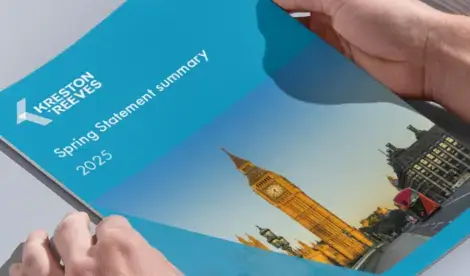Jo White FCA CTA
- Tax Partner
- +44 (0)330 124 1399
- Email Jo
Suggested:Result oneResult 2Result 3
Sorry, there are no results for this search.
Sorry, there are no results for this search.
View all peoplePublished by Jo White on 16 August 2023
Share this article
Many parents, and grandparents, wish to ensure that their children and grandchildren are provided for but they may also wish to make sure that they retain control over the assets concerned and also that there is an element of protection, ring-fencing them for the future.
Many people acquire wealth over the years, be it in in the form of cash, investments, business interests, inheritance, or property. One way to pass down wealth and assets is via the use of a trust and a common use of a family trust is to provide for education fees for existing and future children and grandchildren.
The average cost of raising a child to the age of 18 excluding school fees is around £202,660 and private school fees have risen by 5.6 per cent from last year, according to figures from the Independent Schools Council.
For a Trust set up by a grandparent or other relative, this type of trust can be established at any point including where the beneficiaries are under 18. It can then be operated for as long as required.
Using a Trust in this way is only beneficial if a non parent initially settles any money as if a parent were to give any money into Trust up until the child is 18, the income extracted would be taxable on the parent.
Providing the Trust is set up correctly, any income arising from the Trust can be used to meet the nursery, school, or university fees of the beneficiaries. Any money drawn from the Trust for their education will be taxed on them personally. However, assuming they have little or no other income a tax credit equal to the money drawn will be repayable to them from HM Revenue & Customs.
The advantage of this arrangement is where a parent would have to fund the fees from their post tax income, the school fees payable through a Trust can be effectively paid out of pre-tax income due to the child being able to reclaim some, if not all of the tax credit mentioned above. In reality, the Trusts income will be tax free, to a certain level, as any amount paid can be reclaimed at a later date by the children.
The settlor of the settlement can also be a Trustee and would therefore be able to exercise control over the assets held within the trust. In addition, with a Discretionary Trust, the beneficiaries do not have an entitlement to income or capital and so the assets are protected in the case of bankruptcy or marital/relationship issues.
Another benefit is that the assets in a Discretionary Trust do not form part of the potential beneficiaries’ estates, therefore allowing the assets to pass down through generations.
The legislation relating to trusts is complex. This is only a brief summary of the opportunities available and you should seek specialist advice, specific to your circumstances, before taking any action.
If you would like further information, please get in touch with Tax Partner, Jo White.
Share this article
This site is protected by reCAPTCHA and the Google Privacy Policy and Terms of Service apply.
Our complimentary newsletters and event invitations are designed to provide you with regular updates, insight and guidance.
You can unsubscribe from our email communications at any time by emailing [email protected] or by clicking the 'unsubscribe' link found on all our email newsletters and event invitations.
This site is protected by reCAPTCHA and the Google Privacy Policy and Terms of Service apply.




